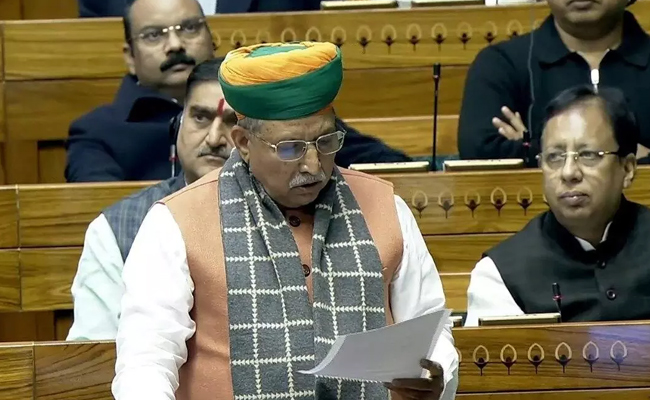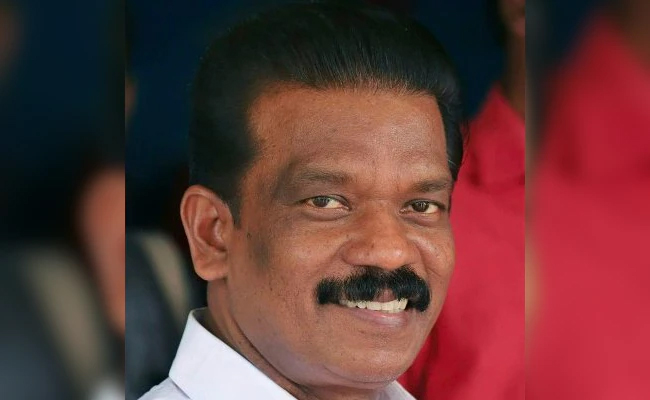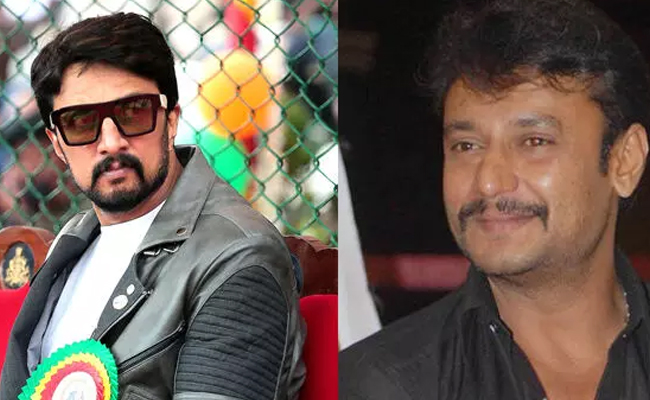New Delhi: The government introduced two constitutional amendment bills in the Lok Sabha on Tuesday to pave the way for implementing the 'One Nation, One Election' proposal. The bills, aimed at synchronising Lok Sabha and state Assembly elections, were tabled by Law Minister Arjun Ram Meghwal. Following the introduction, sources indicated that the legislation might be referred to a joint parliamentary committee for further consultation. As the single largest party, the BJP is expected to chair the committee and hold the majority of seats.
The move triggered sharp reactions from opposition parties, who criticised the proposal as anti-democratic. Congress leader Manish Tewari described the bill as "beyond the legislative competence of the House" and demanded its immediate withdrawal. Samajwadi Party MP Dharmendra Yadav warned that it marked "a path to dictatorship," while Trinamool Congress leader Kalyan Banerjee accused the government of undermining the independence of state legislatures.
Defending the proposal, the government argued that frequent elections disrupt governance, create policy paralysis, and lead to financial and administrative burdens. It asserted that synchronised elections would streamline the electoral process and foster stability in governance. The proposal stems from the recommendations of a panel led by former President Ram Nath Kovind, which submitted its report in September.
The bills propose linking the tenure of state Assemblies to the Lok Sabha, ensuring that state elections align with parliamentary polls. Assemblies elected after 2029 will see their terms end with that of the Lok Sabha, facilitating synchronised elections from 2034 onwards. Provisions related to Union Territories, including Puducherry, Delhi, and Jammu and Kashmir, are also part of the amendments.
Despite the government’s justifications, opposition parties remain firm in their resistance. The Congress and Trinamool Congress labelled the initiative as an “anti-federal” move, alleging it threatens India’s democratic structure.
Let the Truth be known. If you read VB and like VB, please be a VB Supporter and Help us deliver the Truth to one and all.
Dhaka (PTI): Bangladesh interim government’s Law Adviser Asif Nazrul has criticised Prime Minister Narendra Modi’s post on X commemorating Victory Day saying, “India was merely an ally in this victory, nothing more.”
Victory Day or “Bijoy Dibosh” is commemorated every year on December 16 when the Pakistan military surrendered to Indian forces in 1971, bringing about the liberation of Bangladesh.
Nazrul’s comment was reposted by the office of Chief Adviser Muhammad Yunus.
Attaching a screenshot of Modi’s post that paid tribute to Indian soldiers for their role in the historic victory in 1971, Nazrul wrote on Facebook in Bengali on Monday, “I strongly protest. December 16, 1971, marks Bangladesh's Victory Day. India was merely an ally in this victory, nothing more.”
Yunus’ Press Secretary Shafiqul Alam shared Nazrul’s post, The Daily Star newspaper reported on Tuesday.
Anti-Discrimination Student Movement Convener Hasnat Abdullah also criticised Modi’s post.
Abdullah wrote on Facebook that this was Bangladesh's Liberation War and it was for the country’s independence against Pakistan. He said Modi has claimed it was solely India's war and their achievement, disregarding Bangladesh's existence in their narrative.
"When India claims this independence as their achievement, I see this as a threat to our independence, sovereignty and oneness. It's necessary for us to fight against this threat by India. We need to carry on this fight," he wrote.
Modi, in a post on X, had said, “Today, on Vijay Diwas, we honour the courage and sacrifices of the brave soldiers who contributed to India’s historic victory in 1971. Their selfless dedication and unwavering resolve safeguarded our nation and brought glory to us.
“This day is a tribute to their extraordinary valour and their unshakable spirit. Their sacrifices will forever inspire generations and remain deeply embedded in our nation’s history.”
Chief Adviser Yunus led Bangladesh Monday in marking the 54th Victory Day, his speech making no mention of founding leader Mujibur Rahman while calling deposed prime minister Sheikh Hasina’s administration the “world’s worst autocratic government”.
Rahman’s daughter Hasina was ousted from power on August 5 after massive student-led protests against her Awami League government.
There was also no mention of India’s role in Yunus’ address to the Nation on Bijoy Dibosh.
India commemorates December 16 as Vijay Diwas when over 90,000 Pakistani soldiers surrendered before the Indian Army, leading to the creation of Bangladesh.
India had also backed Bengali guerrillas in the fight against Pakistan Army after West Pakistan’s leadership refused to acknowledge the 1970 election victory of Mujibur Rahman’s Awami League.
President Droupadi Murmu and several Indian political leaders too had paid homage Monday to the heroes of the 1971 war.
"A grateful nation remembers the ultimate sacrifice of our brave-hearts whose stories inspire every Indian and shall remain a source of national pride," Murmu said on 'X'.





